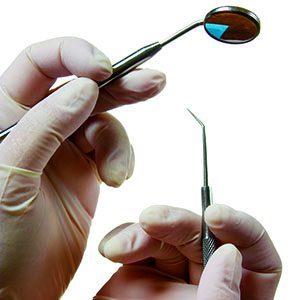
You’re anxious about visiting the dentist! You have this pain at your upper gums that just won’t go away. It had been eons since you’ve gone for a dental screening. Knowing the risks of skipping the dentist visit may help convince you to book that appointment.
- Below are some reasons it’s important to regularly go for dental screenings.
- They assess the health of your teeth and gums, and consequently treat existing disease, and offer preventive measures for possible conditions.
- Identify any unusual signs in your oral cavity such as discolorations of your oral mucosa or leukoplakia that can be signs of a more serious disorder such as infections
- Screen for oral cancer. Oral cancer is steadily becoming more prevalent and dental screenings can identify this fatal disease at its early stage.
Even if you don’t have any teeth and you wear full dentures, dental screening is still important. A check up with your dentist will determine how well your replacement teeth or dentures fit; if they are working properly for you; and also help fix any problems you may have with the dentures. Oftentimes, dentures can irritate the delicate oral mucosa and cause pain and infection. Dental screening may even help identify signs of oral cancer hidden under dentures.
What happens during a regular dental screening?
Your dentist or hygienist will do the following:
- Using dental instruments, your dentist or hygienist will inspect your mouth and evaluate oral hygiene.
- Inspect your teeth one at a time to assess the condition of each tooth, checking for signs of decay or loose teeth. If your dentist finds cavities, they will fill them to prevent further tooth decay. Furthermore, your dentist will check for broken fillings and crowns.
- They will evaluate your risk of tooth decay including root decay.
- Assess entire mouth for health issues or possibilities of early dental diseases. They will also check for gum diseases like gingivitis.
- They will evaluate your risk of teeth loss, and what can be done to prevent or treat it.
- They’ll check if any tooth needs restoration or replacement. If some of your teeth are decayed and need to be pulled off, then you’d need dental bridges. Or your dentist discovered a cracked or broken tooth then you’ll need a crown. If a tooth is beyond saving your dentist can recommend dental implants.
- Look for signs of oral cancer. Your dentist will feel the sides of your neck and under your jaw for the presence of enlarged lymph nodes. They’ll inspect the insides of your lips and cheeks, tongue and the roof of your mouth.
- Inspect your oral mucosa or tissue for ulcerations and lesions
- Look for problems regarding your jaw and if your teeth are crooked or misaligned. Your dentist evaluates your jaw through an impression of either your upper or lower jaw, or both. An impression is also useful to make a mouth guard or bleaching tray which you can use if your teeth are stained.
- Take x-rays of your teeth to assess specific areas of your mouth and other diagnostic procedures if needed to determine hidden decay in between teeth and level of the bone that can indicate periodontal disease.
- Clean your teeth and remove stains.
- Recommend cosmetic procedures that can improve the way your teeth looks, and brighten and beautify your smile.
- Teach you the proper way of brushing and flossing your teeth or cleaning your dentures.
It’s essential that your dentist knows if you’re suffering from diseases such as diabetes which puts you at higher risk of gum disease. Your dentist would also want to know your medications. Some medications can cause dry mouth which can make you prone to tooth decay. If you have arthritis that affects your hands and consequently affects how well you brush your teeth, your dentist will recommend a toothbrush adapted for your hands such as inserting your toothbrush into a rubber ball for convenience in brushing your teeth or even using a battery operated toothbrush.
When your dentist is thorough, they will discuss the best diet for strong and healthy teeth, and other lifestyle choices that can affect your teeth and your overall health, like smoking.
A regular dental screening should be done every 6 months as recommended by the American Dental Hygienist’s Association. Or depending on your oral condition, your dentist will set the next appointment date.
Regular dental screenings is an essential part of keeping a healthy, clean mouth, thus avoiding possible health risks, and maintaining your bright, shiny smile. So don’t skip this very necessary appointment. When it’s all done, you’ll be very glad you did!
